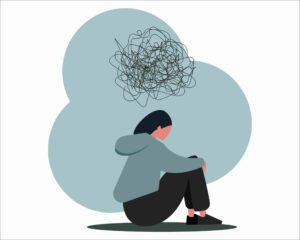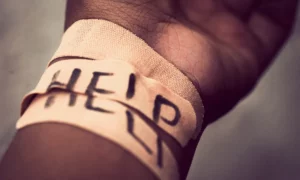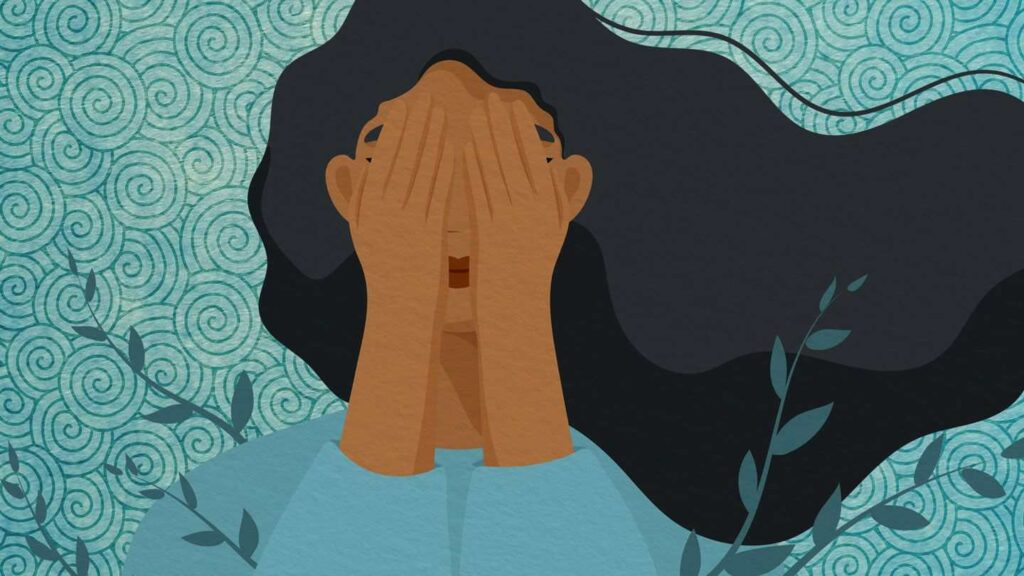Depression is a real mental illness that affects millions of people every year. Unfortunately, there are a lot of myths about this condition that prevent people from getting the help they need. In this blog post, we will dispel some of these myths and provide information on how to know if your depression is real. If you think you may be suffering from depression, please seek professional help!
Contents
What Is Depression?
 Depression is a mental health condition that causes a person to feel persistently sad or low. This condition can affect a person’s ability to work, study, eat and sleep. It can also lead to feelings of hopelessness and despair.
Depression is a mental health condition that causes a person to feel persistently sad or low. This condition can affect a person’s ability to work, study, eat and sleep. It can also lead to feelings of hopelessness and despair.
There are different types of this condition, and it is important to get the right diagnosis so that you can receive the most appropriate treatment.
Moreover, it is important to understand that this condition is real as there are many myths about depression that can prevent people from seeking help. Because of this, it is important to be able to identify the signs and symptoms of depression so that you can get the help you need.
How To Identify If Your Depression Is Real?
There are many myths about depression, and it can be hard to figure out if your depression is real. This condition is a serious medical condition that should not be taken lightly. Here are some signs and symptoms that you should pay attention to:
Lack of concentration or focus
It is normal to have some days where you can’t seem to focus or concentrate. However, if this occurs more often than not, it could be a sign of depression. Lack of concentration can make it difficult to perform everyday tasks, and may also lead to problems at work or school.
Decreased energy levels
When you’re depressed, you may feel like you can’t get out of bed or that your body is heavy. You may also find yourself napping more often than usual. Fatigue and low energy are common symptoms of depression.
Changes in sleep patterns
If you’re struggling with depression, you may notice changes in your sleep patterns. This could include difficulty falling asleep, waking up frequently during the night, or sleeping more than usual. You may also find that you can’t concentrate as well after a poor night’s sleep. And further, this can lead to sleep deprivation which can make depression worse.
Appetite changes
Depression can lead to changes in your eating habits. You may find that you’re not as hungry as you used to be, or that your appetite has increased. Weight loss or gain can be a sign of this condition, so it’s important to pay attention to any changes in your eating habits.
Hopelessness and helplessness
When you’re depressed, you may feel like there’s no hope for the future. You may feel like your situation is never going to improve, or that you’re powerless to change anything. These feelings can be extremely debilitating and can make it difficult to get out of bed in the morning or take care of yourself.
Irritability and anger
Depression can cause you to feel angry and irritated all the time. You may find yourself snapping at your friends or family, or getting into arguments more often than usual. This irritability can make it difficult to have healthy relationships. For instance, you may find yourself pushing people away or isolating yourself.
Loss of interest in activities
It is very common and one of the obvious signs of this condition is to lose interest in activities that you used to enjoy. This can include hobbies, socializing, or intimacy. When you’re depressed, you may find that nothing brings you joy anymore.
Self-harm
 Finally, if you are having thoughts of harming yourself in any way, it is imperative that you seek professional help immediately. Depression can sometimes make people think that harming themselves is the only way to make the pain go away, but this is not true. There are many other ways to get help for your depression, and harming yourself will only make things worse.
Finally, if you are having thoughts of harming yourself in any way, it is imperative that you seek professional help immediately. Depression can sometimes make people think that harming themselves is the only way to make the pain go away, but this is not true. There are many other ways to get help for your depression, and harming yourself will only make things worse.
Overall, these are just a few of the many symptoms that can help you determine whether or not your depression is real. If you are experiencing any of these symptoms, it is important to seek professional help. This condition is a serious condition that should not be taken lightly. With the proper treatment, however, it is possible to live a happy and fulfilling life.
What Are Some Myths About Depression?
As many as one in six people will experience depression at some point in their lives. Despite how common it is, there are still a lot of myths about depression floating around. Here are some of the most common myths, and the reality behind them.
- Myth 1: Depression is just sadness
The reality is that depression is much more than just sadness. It is a serious mental illness that can affect every area of your life. Depression can cause physical symptoms like fatigue and headaches, as well as emotional symptoms like hopelessness and despair.
- Myth 2: Depression is something you can just snap out of
If only it were that easy! Depression is a real medical condition that requires treatment. Just like you can’t will yourself to get over a cold, you can’t will yourself to get over this condition.
- Myth 3: Depression is a sign of weakness
This couldn’t be further from the truth. This condition is not a sign of weakness, it is a sign that you are dealing with more than you can handle. It takes a great deal of strength to seek help and to keep going when you are dealing with depression.
- Myth 4: Depression is something that only happens to adults
Depression can happen at any age, even in children. If you are worried that your child may be depressed, talk to their pediatrician. In fact, one in 33 children and one in eight adolescents have this condition.
- Myth 5: It is always caused by a traumatic event
While it is true that a traumatic event can trigger depression, it is not always the case. This condition can be caused by a chemical imbalance in the brain, as well as by genetics. And there could be another underlying factor, such as an illness, that is causing the depression.
So, you can see these are some myths that are out there about this condition. The most important thing to remember is that depression is a real medical condition that requires treatment. Please reach out for help.
Is Depression A Forever Thing?
 Depression is not a one-time event. It is a real, legitimate medical condition that can be diagnosed by a mental health professional. This condition is often described as an illness that consists of episodes. An episode of depression may last for weeks or months, and people with depression may have several episodes in their lifetimes.
Depression is not a one-time event. It is a real, legitimate medical condition that can be diagnosed by a mental health professional. This condition is often described as an illness that consists of episodes. An episode of depression may last for weeks or months, and people with depression may have several episodes in their lifetimes.
However, it is possible for people with this condition to have only a single episode in their lifetime. In some cases, it is not a forever thing. But it is a real medical condition that should be treated by a mental health professional.
While it can be said that if someone has experiences depression episodes once in a life, they become prone to the condition, it’s not always the case. For example, postpartum depression is a form of this condition that can occur after having a baby. It is thought to be caused by hormonal changes, but it is not clear if this is the only cause. Postpartum depression is treatable and usually goes away within a few months.
So, you can experience this condition’s episodes at different points in your life, but that doesn’t mean you have to suffer from this condition forever. If you think you may be suffering from this condition, please see a mental health professional for an evaluation.
Conclusion
In a nutshell, depression is real and can be very serious. It is often defined as an illness, characterized by persistent sadness, loss of interest in activities, and difficulty functioning. It can lead to a range of emotional and physical problems and can decrease a person’s ability to function at work and at home.
So, it is important to talk to your doctor or mental health professional to get a proper diagnosis and treatment. This condition is treatable and there are many resources available to help you.
For more information and guidance, do not forget to speak with a healthcare professional at Therapy Mantra. The earlier you seek help, the better it is for your condition. Contact us today to learn more about our services. You can also book our online depression counseling session or download our free Android or iOS app.


